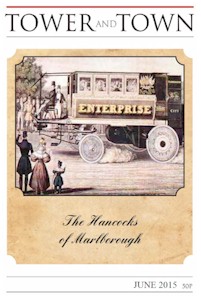

Tower and Town, June 2015 (view the full edition) (view the full edition)Charles Hancock: Painting, Gutta-Percha, Electric TelegraphCharles was the youngest of the brothers and apprenticed to a painter in London. At the age of 17 he had pictures hung in the Royal Academy summer exhibition. Throughout his life he was a respected and financially successful painter, increasingly featuring animals and especially successful racehorses. His pictures are still collected today.
Around this time 'gutta-percha' was being introduced into the UK from Malaya. Like rubber it was a tree sap, but differed in molecular structure and was a solid at normal temperatures. Charles, like Thomas, and Walter was a member of the Royal Society of Arts (RSA) where their friend Michael Faraday suggested gutta-percha might be a good material for insulating telegraph wires. Charles was finding portraiture less lucrative than he had hoped and was working with Walter to invent a gutta-percha artificial bottle cork, and founded the Gutta Percha Company off the City Road in London making chamber utensils. But then Charles, who seems to have had little compunction about double crossing his siblings or business partners, patented a machine to insulate telegraph wires without telling them. In the furore he lost this company and with Walter set up the West Ham Gutta Percha Company in competition, but this quickly went bankrupt. The patents and the stock were bought by Mr Samuel Winkworth Silver (who gave his name to Silvertown in the Isle of Dogs) who formed 'The Indiarubber, Gutta Percha & Telegraph Cable Works.' Meanwhile the original company supplied the cable for the 1850 and 1851 cross-Channel and the 1858 trans-Atlantic telegraphs. Alexander Kirk Wilson |